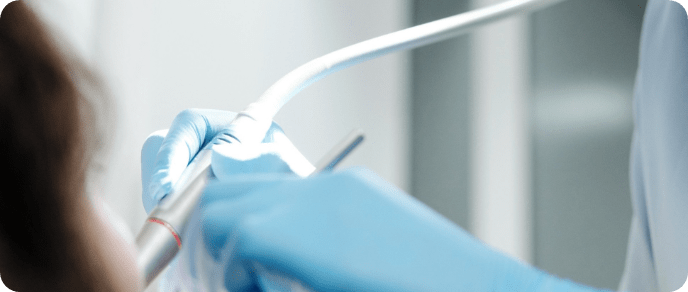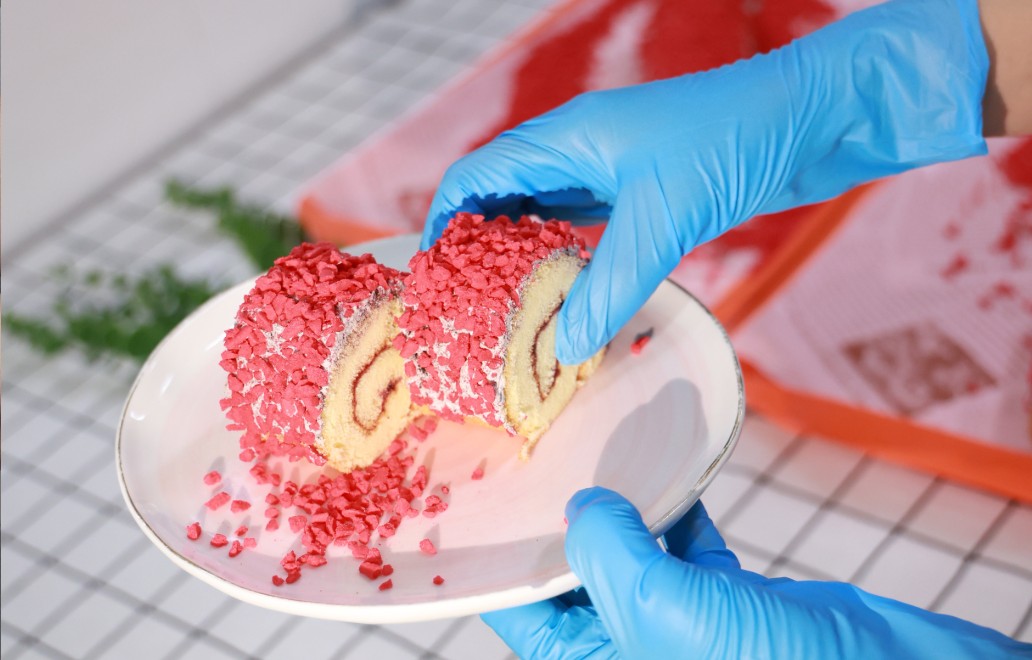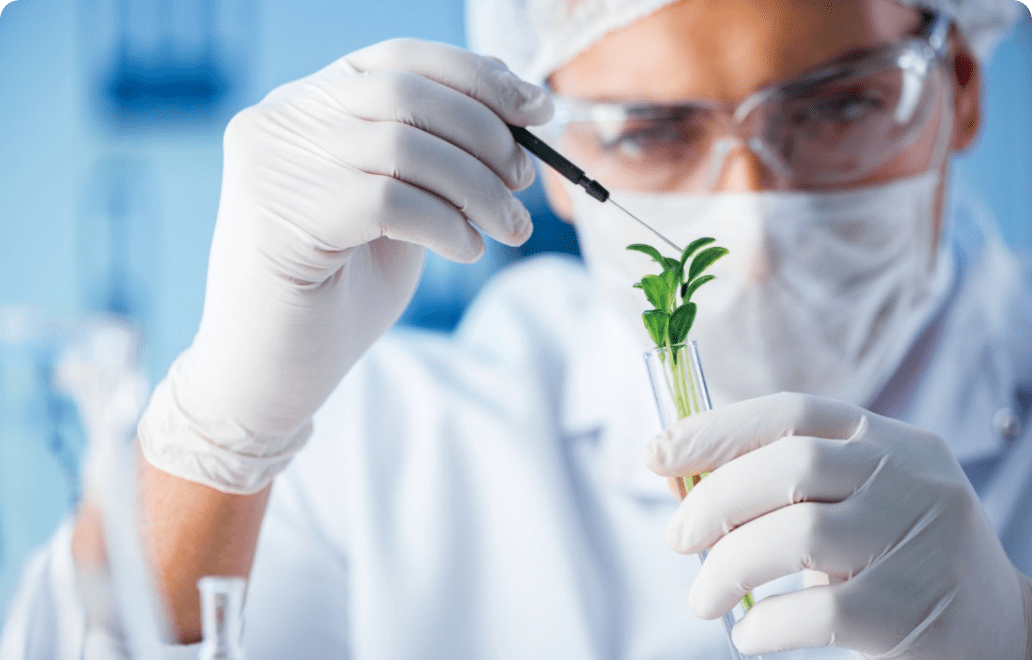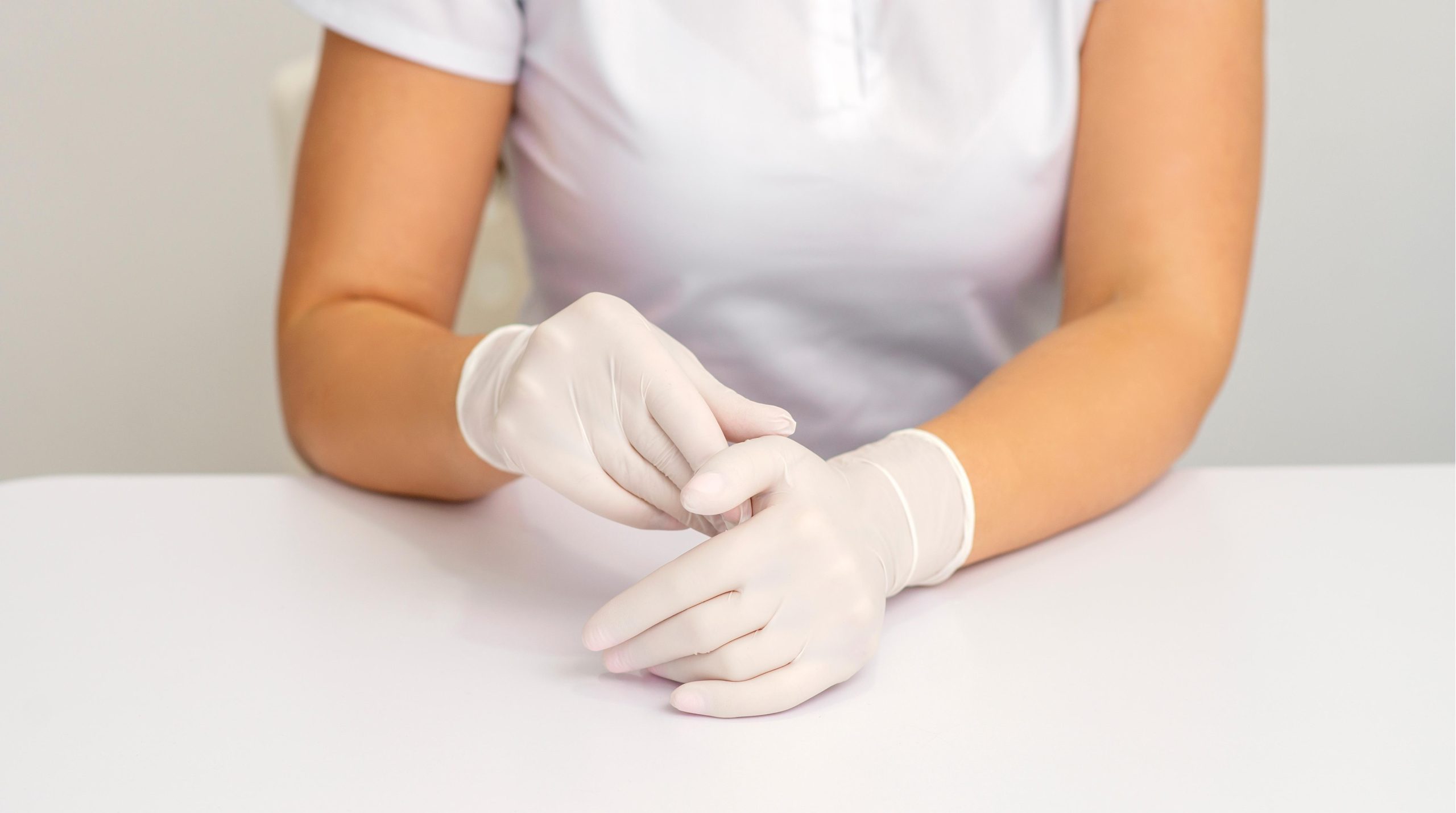Glove products
Synthetic vs. Natural Latex Gloves: Best Allergy-Free Disposable Gloves for Sensitive Skin
The Importance of Disposable Gloves in General and Industrial Use
For individuals with sensitive skin, the choice of disposable gloves is of greatest significance due to latex allergy. Latex is a rubber tree product and contains proteins that can trigger allergic reactions ranging from mild inflammation to anaphylactic reactions. This article compares natural latex and synthetic gloves based on material, allergy risks, usage, and environmental impact to help readers make an informed decision.
What are Natural Latex Gloves?
Natural latex gloves are made of Hevea brasiliensis rubber tree sap, which is valued for its strength, elasticity, and texture. They are manufactured by tapping rubber trees, filtering latex, and chemically treating it to make it elastic and stronger. Natural latex gloves are molded, vulcanized, and washed to give a smooth finish. Natural latex gloves are widely utilized in medical, food, and laboratory industries due to their better grip and fit.
Risk of Allergies in Natural Latex Gloves
Allergenic natural rubber sap proteins cause allergenic natural latex gloves. These can include low-grade skin reactions such as itching and rash through to death and anaphylaxis. The greatest risk is to large users such as health professionals. Contact dermatitis is highly likely to be the most prevalent, and this is known as red, inflamed skin. Contact in bad cases can lead to swelling, trouble breathing, or even possibly deadly anaphylactic shock and needs prompt intervention by a doctor.
Introduction to Synthetic Latex Gloves
What are Synthetic Latex Gloves?
Synthetic latex gloves are produced as substitutes for natural latex gloves without sacrificing allergy issues. They are produced synthetically from synthetic polymers such as styrene-butadiene or acrylonitrile-butadiene rubber and undergo controlled mixing of additives, emulsification, and curing. What is produced is a hard, elastic, and chemical-resistant glove that can be applied universally in industries.
How They Vary in Composition from Natural Latex Gloves
Synthetic and natural latex gloves, synthetic gloves contain no latex proteins and are therefore hypoallergenic. They also contain fewer allergenic additives in the manufacturing process. Natural latex gloves are sulfur vulcanized, whereas synthetic gloves use different curing agents, which reduce the risk of skin irritation. The variation in composition renders synthetic latex gloves appropriate for sensitive skin.
Benefits of Synthetic Latex Gloves on Delicate Skin
Hypoallergenic Nature
The absence of natural latex proteins within artificial gloves eliminates the threat of allergic harm, and thus they are totally harmless to delicate skin. Tests show that physicians who change over to artificial gloves have fewer instances of allergic reactions. Producers can moderate add-ins, which similarly lower skin irritation.
Additional benefits like Strength, Comfort, and Function
Artificial latex gloves are robust and long-lasting. They meet the majority of ASTM D6319 standards, with better puncture resistance and flex. They possess the tensile strength necessary to use them in heavy industries involving the use of heavy-duty protective equipment. They are also gentle on the skin, hence ensuring they avoid causing hand fatigue upon prolonged usage. They are not soluble in oils, chemicals, and solvents, unlike natural latex gloves, and thus easy to manipulate when used in industry and laboratories.
Environmental Factors
Although natural latex gloves are biodegradable, they cause deforestation when produced. Synthetic gloves, regardless of whether or not they are biodegradable, can be made in a way that conserves energy and minimizes waste. Recycling and eco-friendly manufacturing minimize the environmental impact of synthetic gloves, thereby making them a viable choice for security and sustainability.
Cost-Effectiveness Analysis
Synthetic latex gloves are financially more feasible in the long run as they are more durable and cheaper to replace compared to natural latex gloves. They reduce medical expenses, allergic reactions, and lawsuits. Their low-cost production also reduces wastage, i.e., the cost of manufacturing is less and, the prices of customers are less.
INTCO Medical’s Synthetic Latex Gloves: A Closer Look
INTCO Medical is the world’s largest latex-free disposable gloves manufacturer. INTCO Medical Syntex™ Synthetic Latex Gloves are one of the major technological innovations to provide a solution to overcome the shortcomings of widespread natural latex gloves, particularly the hazard of allergy.
INTCO Medical’s patented formula ensures that Syntex™ gloves maintain the elasticity of natural latex without triggering allergies.
Features and Benefits
Revolutionary Ultra-Soft Formula: Syntex™ gloves are soft and touch-sensitive, stretch more than 600%, are highly flexible, and resistant. This gives a close fit, which is best for sensitive procedures such as dental treatment.
Minimum Allergenicity: As Syntex™ gloves contain no natural latex proteins and sulfur, they reduce allergic reactions. These are thus best to be used on sensitive skin, offering protection in healthcare industries.
Greater Protection: They are more resistant to puncture and chemicals and are used best in industry and medicine. They guard against piercing objects and dangerous chemicals and provide protection where it is risky.
Eco-Friendly and Supply Chain Assurance: Syntex™ gloves are made from 100% synthetic latex, minimizing the environmental footprint of natural rubber production. INTCO Medical provides product conformity to the European Union Deforestation Regulation and provides a carbon footprint report, with a secure supply chain that is less exposed to external factors such as weather and disease.
Uncommon Value: Syntex™ gloves boast comfort to wear like latex at a sensible cost with a cost-performance relationship that is economical. In the long term, their money-saving hypoallergenic and durable nature repay costs, particularly in the mass application of healthcare establishments.
Customization Options: INTCO Medical can offer various sizes (XS to XXL), package types (bulk, box, sterilized/unsanitary), and corporate branding. They will allow disposable gloves factory to meet different industries demands and develop specialty product lines.
How to Choose the Optimal Gloves for Sensitive Skin
When choosing gloves for sensitive skin, history of allergy, use conditions, protection level required, and cost are some considerations.
- Allergy History: Those with latex allergy or rashes on the skin should not use natural latex gloves and must use synthetic latex gloves to prevent any allergic reactions.
- Use Application: Special gloves are required for various industries. For medical purposes or food processing, the gloves should be clean. In industry, the gloves should be puncture-resistant, abrasion-resistant, and chemical-resistant.
- Protection Requirements: Choose gloves based on the nature of hazards, i.e., high chemical resistance for laboratory use or puncture resistance for construction.
- Budget: Synthetic latex gloves are more expensive than certain natural latex products up front, but their extended lifespan and hypoallergenic qualities end up being a cost-saver in the long term. Businesses need to find some balance between cost and value to get the best protection without spending too much money.
Tips for Making the Best Choice
- Test Samples First:Buy samplesfirst before bulk purchase to test for comfort, fit, and allergy. This way, the gloves will satisfy your customers’ demands.
- Product Certifications: Get gloves certified to global standards (e.g., ASTM, ISO) for quality, safety, and performance.
- Read Reviews: Customer reviews show comfort and performance so that one can make an informed choice.
- Ask the Experts:If you are unsure, ask the experts or suppliers like INTCO Medical to guide you on what gloves to use.
Selecting the proper gloves for sensitive skin involves careful attention to a number of problems. While natural latex gloves are extremely elastic, they are also highly allergic. Synthetic latex gloves like INTCO Medical’s Syntex™ are hypoallergenic, more resistant, and more protected, though. They are kind to the wearer and appropriate for medical, dental, food processing, and industrial use.
For businesses that need top-quality, hypoallergenic gloves, INTCO Medical’s Syntex™ Synthetic Latex Gloves are a superior value, can be ordered custom, and a safer, lower-cost option. Get in touch with us to learn more about our products and services.





























